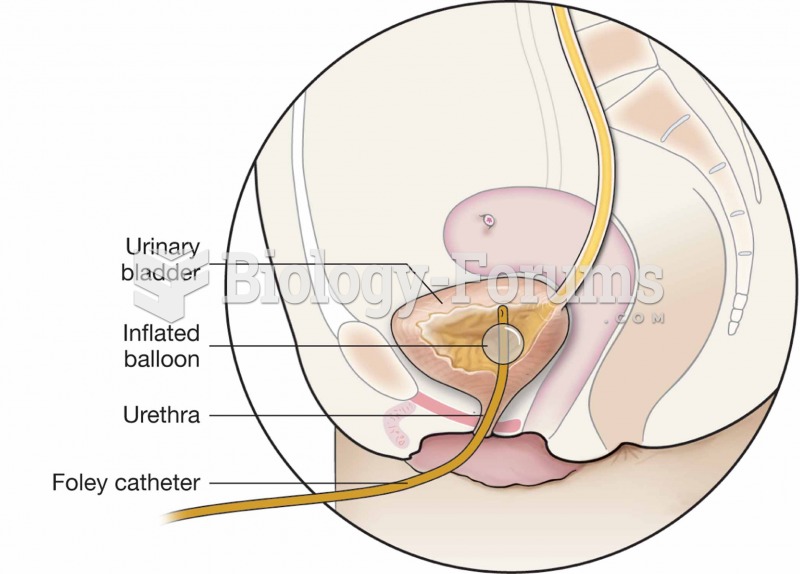|
|
|
The human body's pharmacokinetics are quite varied. Our hair holds onto drugs longer than our urine, blood, or saliva. For example, alcohol can be detected in the hair for up to 90 days after it was consumed. The same is true for marijuana, cocaine, ecstasy, heroin, methamphetamine, and nicotine.
The strongest synthetic topical retinoid drug available, tazarotene, is used to treat sun-damaged skin, acne, and psoriasis.
Symptoms of kidney problems include a loss of appetite, back pain (which may be sudden and intense), chills, abdominal pain, fluid retention, nausea, the urge to urinate, vomiting, and fever.
In the ancient and medieval periods, dysentery killed about ? of all babies before they reach 12 months of age. The disease was transferred through contaminated drinking water, because there was no way to adequately dispose of sewage, which contaminated the water.
Hypertension is a silent killer because it is deadly and has no significant early symptoms. The danger from hypertension is the extra load on the heart, which can lead to hypertensive heart disease and kidney damage. This occurs without any major symptoms until the high blood pressure becomes extreme. Regular blood pressure checks are an important method of catching hypertension before it can kill you.
 Organisms exhibit a diversity of behaviours, which include (clockwise from upper left), foraging and
Organisms exhibit a diversity of behaviours, which include (clockwise from upper left), foraging and
 Organisms exhibit a diversity of behaviours, which include (clockwise from upper left), foraging and
Organisms exhibit a diversity of behaviours, which include (clockwise from upper left), foraging and
 Invasive species in Canada include (a) zebra mussels, Dreissena polymorpha, (b) sea lamprey, Petromy
Invasive species in Canada include (a) zebra mussels, Dreissena polymorpha, (b) sea lamprey, Petromy




